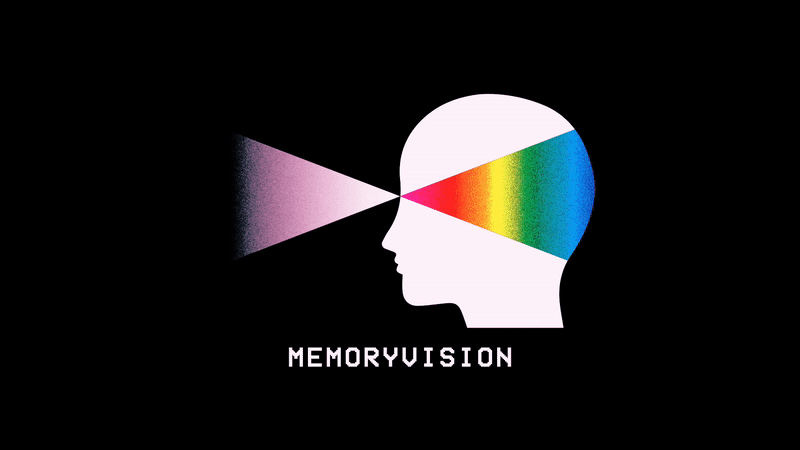MemoryVision
Memories are a peculiar thing.
Memories have no physical space, nor do they technically exist.
And yet, they are some of the most important and impactful facets of the human experience.
Memories are a type of thought tied to our experiences, things we smell, places we've been, sounds we have heard. Memories provide context to our lives and play a massive part in how we develop as people.
While memories may be personal, they are also social, taking the form of shared experiences, sociological values, and much more.
We live in a time of distorted memories. White, male members of the 'Greatest' and 'Silent' generations crave for the 'good old days' that existed for some time before the 80's. These attachments to the values of such memories are now considered staples of American culture, for better and worse. The memories of Baby Boomers, who crave for the 70's and 80's, can most easily be identified in their impact on pop culture with reboots of both beloved and forgotten 80's films. One does not have to do very much searching on Facebook, Twitter, and other social media sites to find posts and memes glorifying "90's Kids." While many write off 90's nostalgia for being too recent, there are two massive cultural shifts that may the reason as to why 90's nostalgia has sprouted up less than 20 years after the decade. (HYPERLINK TO: It was 9/11. That, and the rapid technological and social evolution that the internet brought to every house in the west. But it was mostly 9/11.)
It's not a new phenomenon for generations to miss the memories of the past. Perhaps we feel more nostalgic because we can recall the past easier than ever before with the internet and the hyper-accessibility of technology.
Tomorrow is complicated. Yesterday is simple.
So here we are. In a present obsessed with an idealized past that never existed for some, and certainly no longer exists.
Memoryvision is a series of short montages shot on digital, converted to look like VHS film, and digitally edited together to atmospheric, often times synth-based music. The goal of Memoryvision is to encourage a sense of nostalgia using familiar images and ethereal music. Nostalgia for when? Nostalgia for what? Nothing, really.
It's a fairly popular piece of knowledge among the Psychological community that memories can be artificially created. With the right state of mind and proper suggestion, a memory can be formed by something as simple as looking at a photo or video.
Do you remember this sunny day in a garden?
Or when you sat on the beach and watched the waves crash against the shore?
You most likely don't, unless of course, you are me, which as far as I know, you aren't.
And yet, these images are fairly universal, thus you may watch a Memoryvision and your brain may trigger your own memory of an experience similar in tone and location.
The purpose of Memoryvision is not to implant memories, but to augment the feeling of remembering.
Loosely using the properties of memory illustrated in Sonnabend's Theory of Obliscence as a jumping off point:
Imagine the camera as an eye for both metaphorical purposes and the purpose of properly conveying what I'm about to say. We use our eyes as a way to observe our surroundings. When we see something, we pull the information imported from our sight and register it in our brains as a memory. When we replay this experience though, it is not like seeing it, it is distorted by other things such as how we felt or how much we were paying attention when we experienced it. The memory is not the same thing as the experience, it is edited by the brain.
The camera is the eye through which we experience things, the footage being converted from digital to grainy VHS is the process of the experience being turned into a memory, and the editing of the footage and application of music is the act of remembering.
So as you watch these Memoryvisions, take a moment to reflect on what you are remembering. Is this experience real, or created? Does it make you long for another time and does that longing effect how you act now? This is a personal phenomenon and communities are built on this.
I hope you enjoy Memoryvision

